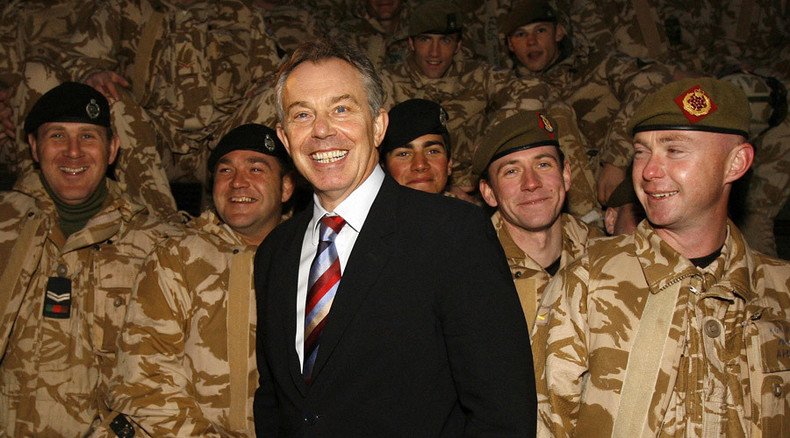Tony Blair ‘misrepresented’ WMD evidence before Iraq invasion – UN inspector

Former Prime Minister Tony Blair “misrepresented” military intelligence in order to secure approval to invade Iraq in 2003, Dr Hans Blix, the head of the UN inspection team at the time, has revealed.
Blix, who inspected Iraq for weapons of mass destruction (WMDs) before the US and British-led invasion, told former-Telegraph journalist Peter Oborne the intelligence gathered was not accurately represented by Blair.
Oborne, along with Dr David Morrison, has worked with the BBC to compile an alternative report into the 2003 invasion. The official inquiry led by Sir John Chilcot has been plagued with delays and will not be published until summer 2016.
During his interview with Oborne, Blix said Blair’s claims about WMD were “not supported by evidence.”
“Mr Blair asserts that there were weapons, well that’s an assertion and it was not supported by evidence,” Blix told Oborne.
“They misrepresented what we did and they did so in order to get the authorization [for war] that they shouldn’t have had.”
Excellent use of the words "should" and "possible" by Chilcot: https://t.co/lsFPtbNAJJpic.twitter.com/ADriHXqjG6
— Alex Wickham (@WikiGuido) October 29, 2015At the time Blair said Saddam Hussein’s regime was in possession of “stockpiles of major amounts of chemical and biological weapons,” despite agency reports suggesting the country’s WMD capabilities were “sporadic and patchy.”
Just three months before the invasion of Iraq, Blix told the UN Security council that some prohibited weapons were “unaccounted for,” but stressed “one must not jump to the conclusion that they exist.”
On Thursday, Chilcot announced his report would be published in June or July 2016. The report will span Britain’s involvement from 2001 to 2009 and will stretch to more than two million words.
"7 years! Longer than WWI between the start of #Chilcot inquiry & its report" - Alex Salmond https://t.co/Oei9mbeDy5pic.twitter.com/HmQEDBWycX
— RT UK (@RTUKnews) October 29, 2015In his letter to Prime Minister David Cameron, Chilcot said the document itself would be ready by April, when it would then undergo the process of “national security” checking. The process is “normal and necessary” for a document containing so much sensitive data, he said.
“I consider that once national security checking has been completed it should be possible to agree a date for publication in June or July 2016.”
The inquiry last took evidence in 2011.
Earlier this week, Blair told CNN he had made “mistakes,” but would not apologize for the “fact the intelligence we received was wrong.”
Blair says #Chilcot delays not because he had contested findings https://t.co/Oei9mbeDy5pic.twitter.com/KYC8eHzeTY
— RT UK (@RTUKnews) October 29, 2015“Even though [Saddam] had used chemical weapons extensively against his own people, against others, the program in the form that we thought it was did not exist in the way that we thought,” he said.
“I find it hard to apologize for removing Saddam. I think, even from today in 2015, it is better that he’s not there than that he is there.”
Blair added that there were “elements of truth” that the rise of Islamic State had at least been in part a consequence of the 2003 invasion.
The rest of Oborne’s findings will be broadcast on Thursday evening at 20:00 GMT on BBC Radio 4.












